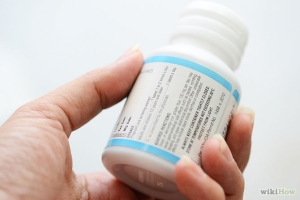 For patients with type 2 diabetes – especially those over age 50 – the negative impact of side effects like weight gain and burdens like frequent insulin shots trumps the benefits of drugs, says a new study by the University of Michigan Health System, the VA Ann Arbor Healthcare System, and University College London.
For patients with type 2 diabetes – especially those over age 50 – the negative impact of side effects like weight gain and burdens like frequent insulin shots trumps the benefits of drugs, says a new study by the University of Michigan Health System, the VA Ann Arbor Healthcare System, and University College London.
 For patients with type 2 diabetes – especially those over age 50 – the negative impact of side effects like weight gain and burdens like frequent insulin shots trumps the benefits of drugs, says a new study by the University of Michigan Health System, the VA Ann Arbor Healthcare System, and University College London.
For patients with type 2 diabetes – especially those over age 50 – the negative impact of side effects like weight gain and burdens like frequent insulin shots trumps the benefits of drugs, says a new study by the University of Michigan Health System, the VA Ann Arbor Healthcare System, and University College London.
The findings, which appear in this week’s Journal of the American Medical Association Internal Medicine, show that for many, the benefits of taking diabetes medications are so small that they are outweighed by the minor hassles and risks.
These findings suggest that, contrary to current guidelines for type 2 diabetes that recommend intensifying treatment until a person’s blood sugar level reaches a certain goal, the overall benefit of taking a new medicine depends less on blood sugar and more on the hassles, safety and side effects of taking the treatment.
“For people with type 2 diabetes, the goal of managing blood sugar levels is to prevent associated diabetes complications, such as kidney, eye and heart disease, but it is essential to balance complication risks and treatment burdens when deciding how aggressively to treat blood sugars,” says lead author Sandeep Vijan M.D., M.S., professor of Internal Medicine at the U-M Medical School and research scientist at the Center for Clinical Management Research at the VA Ann Arbor Healthcare System.
“If you’re a patient with fairly low complication risks, but are experiencing symptoms from low blood sugar, gaining weight or find frequent insulin shots to be disruptive to your daily life, then the drugs are doing more harm than good. Prescribing medicine isn’t just about reducing risks of complications, but also about helping patients improve their quality of life.”
Vijan notes that for many patients, once moderate levels of glucose control are achieved, there is little additional benefit to intensive blood sugar treatment, but treatment costs, burdens and risks increase substantially. The study finds that the benefits of treatment decline with age and by age 75 the harms of most treatments are likely to outweigh any benefits.
The findings exclude the 15-20 percent of people with type 2 diabetes who have very high blood glucose levels (which are defined by what’s called an A1c test ) and need more aggressive treatment to manage the disease.
Individualized treatment recommendations determined by patients’ estimated risk of diabetes complications – influenced by their age and degree of blood glucose elevation – and considering the side effects and amount of safety data of the medication being considered, is a much better approach than focusing solely on glucose goals, the researchers argue.
“Drugs that lower blood sugar levels are extremely beneficial in some patients but offer almost no benefit for others. These results have major implications for the millions of people who are currently being told that they need to increase medication in order to achieve their ‘glucose goal,’” says senior author Rodney Hayward, M.D., professor of medicine in the U-M Medical School and senior research scientist at the Center for Clinical Management Research at the VA Ann Arbor Healthcare System.
“Current quality measures do not allow doctors and patients to make good decisions for each patient because they emphasize reaching targets instead of thinking of the risks and benefits of starting new medications based on individual circumstances and preferences.”
The study is the latest to challenge “treat-to-target” guidelines in medicine. Research concluding that risks outweighed benefits of drugs intended to achieve specific blood pressure goals in some patients prompted a significant change in hypertension guidelines last year and similar recommendations were implemented for lipid-lowering therapy.
International Federation for Diabetes guidelines for treating older people says the emphasis should be on managing complexity and quality of life issues – especially for frail elderly and those with dementia. “There is a need to individualize the medication regimen to balance the imperative to control disease states with the imperative to avoid/minimize medicine related adverse events. Medicines are associated with significant risks in older people such as falls, confusion and other cognitive changes, and admission to hospital or emergency departments could be avoided if medicines are managed optimally.”
Both Vijan and Hayward are members of the Institute for Healthcare Policy and Innovation.






